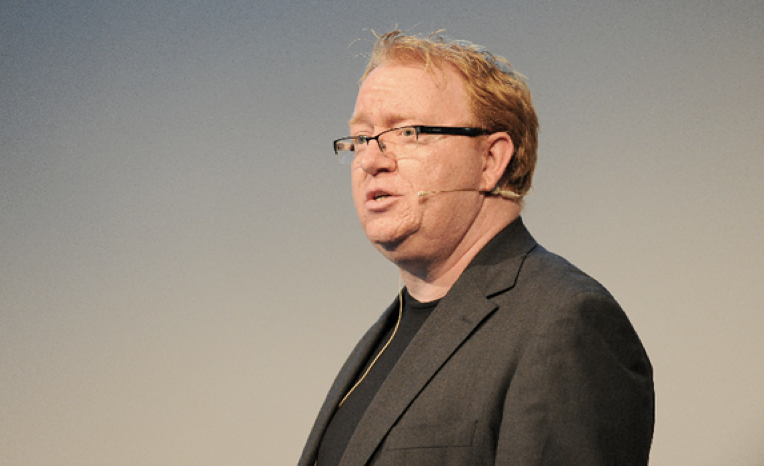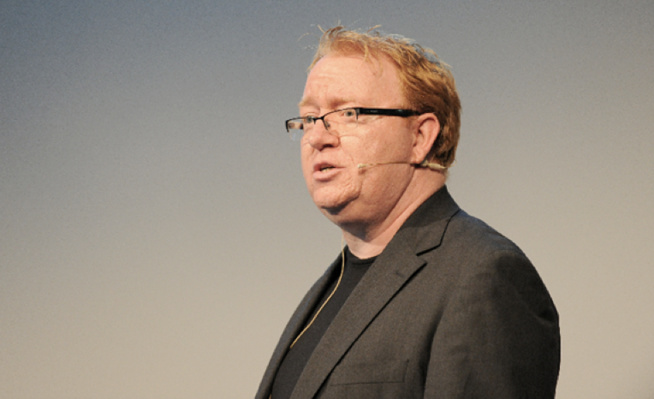Nik Goodman is a radio executive who has worked in the industry for almost 30 years. Nik worked as Head of Music for UK national station Virgin Radio, owned at the time by radio presenter, Chris Evans.
He then became the Programme Manager and helped steer the station to record audience and revenue figures.
Nik has also worked as a Programme Director of 95.8 Capital FM in London, working closely developing on-air talent and maintaining the position of Number 1 Commercial Station in the highly competitive London market.
This near 3-decade long career began in Nik’s hometown of Liverpool at Radio City.
‘Bounce’ is the creative and audio production company co-owned by Nik. Bounce develops and produces music, sound and content for both brands and broadcasters with clients ranging from the BBC and Microsoft, through to producing to the soundtrack to London’s New Year’s Eve Fireworks.
You have been in the radio industry for nearly 30 years, what are some of the key lessons that you have learnt about the medium in this time?
I'm fortunate enough to have worked in radio all my life, and look forward to the next 30 years of my career!
You never stop learning in radio and I'm always absorbing new ideas, new ways of doing things, new techniques and new technology. Although we're right in the middle of some fundamental changes to our sector, some things remain constant.
First, the emotional power of radio. Radio is best when it stirs emotions - happiness, sadness, anger, frustration, sympathy. So I always try to ensure that we place human emotion in radio. The human element keeps us authentic.
I've also learnt that radio can be over-produced if you're not careful. I've seen too many shows that are trying to be "perfect" in their desire to improve. Everything becomes too smooth and sterile. There's no edges or reality to what's being done. It becomes 'plastic'. People don't want 'perfect' - they want 'real'. I always work hard on getting radio presenters to be natural.
Finally, there's no substitute for hard work and enthusiasm. You've got to put in the hours, no matter what level you're at, and never ever forget, that working radio is a privilege. So always be enthusiastic, be willing to make things happen, and spread some happiness wherever you work. Life's too short for miserable people!
The lines separating traditional media are blurred by the second, what do you advise radio hosts do in order to innovate, diversify and experiment in order to reach new, perhaps more fickle audiences as there is just so much to choose from?
A radio hosts job is harder than it looks! You need to always be yourself - don't be an 'act'. No one can be a better 'you' than you.
Radio presenters need to try new things, even though not all of those things will work. It is better to try and getting it a bit wrong, than not trying at all.
The execution of a creative idea is all about making mistakes. That's how we get better in life.
Don't try and second guess the audience too much. If it makes you laugh or you find it interesting chances are others will too.
The other thing to add is of course that we now all have the possibility to create whatever radio we want, and put it out there to find an audience. If you love playing ping-pong - make the best ping-pong related radio show you can ever imagine, and put it out there!
The 'long tail' of audio means that the audience will eventually find it, and it will grow into something.
What makes a winning combination for a successful morning radio show?
That's the million-pound question, isn't it! There is no fixed formula for what works, however, there are a few important ingredients.
One ingredient I will talk about is chemistry. Chemistry is important - that 'magic something' between hosts which puts the show on a different level. A strong producer is vital, as they need to guide the show.
The shows that allow the hosts to be themselves, engage the audience, and don't try to be funny all the time, are the ones which tend to work better.
Morning shows need 'room to breathe'...
Music streaming company Spotify says it wants more users- it already has 200 million users, 96 million of whom are paying subscribers. It wants to become the world's largest audio platform and that includes podcasts and on-demand audio. Will such online streaming site "kill the radio star" as it were?
Online streaming is great. I love it. I love podcasts. I love Spotify. I love listening to shows on Soundcloud, Mixcloud and every other cloud available.The fact that there's more audio out there is generally a good thing.
Radio will evolve, and there'll probably be a shift to less linear listening and more personalised on-demand content.
All of that is still "radio" to me. The 'human element' is something which won't be killed off any time soon.
People like to hear other people talk - it's as simple as that. Radio will always be there, for as long as we have something to say.
What will you be talking about at Radiodays Europe 2019?
At Radiodays Europe this year, I'll be talking about 'air-checking' presenters and how to deliver great coaching with a fantastic panel of fellow coaches.
I'll also be looking into the recent 'refresh' of BBC Radio 2 - the most popular radio station in the UK, and discussing the thinking behind that.
I am producing the interview session with Stewart Copeland from The Police. I was a massive fan of the band growing up, and so it's fantastic to get to be able to bring him to Radio Days Europe this year. I know everyone's going to enjoy that session a lot!
Follow @NikGoodman

 French WebSite LaLettre.pro
French WebSite LaLettre.pro









 SOUND ADVICE : CREATING CONNECTIONS WITH THE LISTENER THROUGH IMAGING AND SOUND
SOUND ADVICE : CREATING CONNECTIONS WITH THE LISTENER THROUGH IMAGING AND SOUND